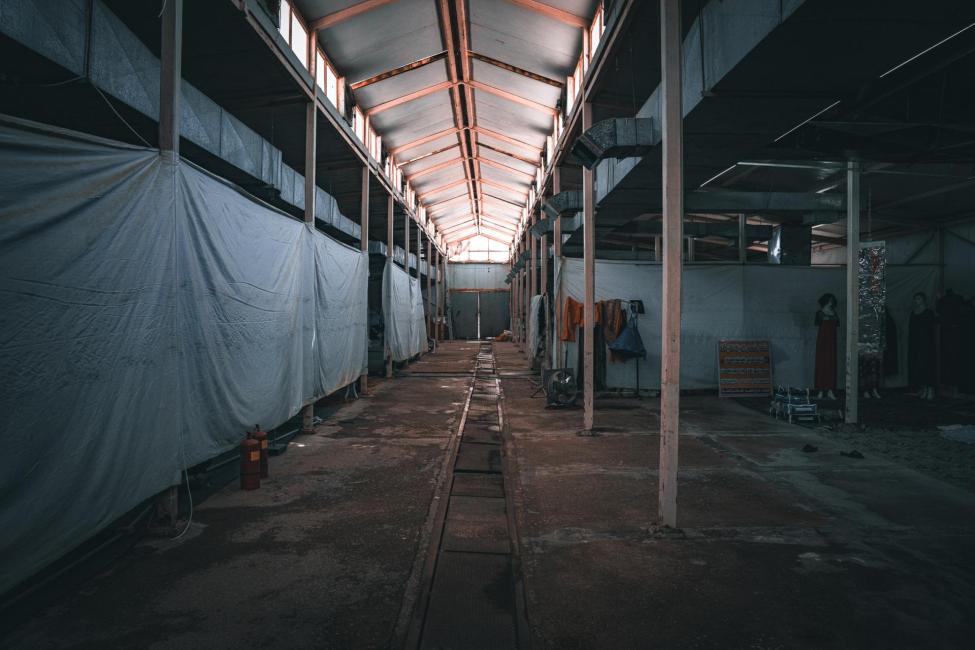-
Who We Are
WHO WE AREThe International Organization for Migration (IOM) is part of the United Nations System as the leading inter-governmental organization promoting since 1951 humane and orderly migration for the benefit of all, with 175 member states and a presence in over 100 countries. IOM has had a presence in Iraq since 2003.
About
About
IOM Global
IOM Global
-
Our Work
Our WorkAs the leading inter-governmental organization promoting since 1951 humane and orderly migration, IOM plays a key role to support the achievement of the 2030 Agenda through different areas of intervention that connect both humanitarian assistance and sustainable development. Across Iraq, IOM provides a comprehensive response to the humanitarian needs of migrants, internally displaced persons, returnees and host communities.
Cross-cutting (Global)
Cross-cutting (Global)
- Data and Resources
- Take Action
- 2030 Agenda
“I pay the rent [for my home] using money from the bread that I sell, and sometimes I receive assistance from the host community."
The difficulties faced by conflict-affected people in securing adequate livelihoods can put both their physical and mental health at risk.
"My great responsibilities and household expenses make our living conditions difficult and also create a heavy psychological pressure on me,” Sura continued. “I tried to find a job opportunity to cover my family's expenses and rent, especially because things have become very expensive when it comes to the basic things needed to live. I heard there were local organizations working in my neighbourhood; I ended up visiting the Shams Al-Hayat workshop and registered my name.”
IOM Iraq offers mental health and psychosocial support (MHPSS) services alongside livelihood interventions as part of its MHPSS and Livelihood Integration (MLI) approach, aimed at helping individuals build coping and stress management mechanisms to apply at work and in other settings. In Abu Ghraib, IOM partners with the Shams Al-Hayat sewing workshop to provide these opportunities to the area’s residents – displaced persons, returnees and host community members.
“Several months ago, I got the opportunity to sew at the workshop and participate in IOM Iraq mental health sessions,” Sura continued. "The sessions were very useful, as I’ve gone through many difficulties throughout my life and because of the pressure of raising my children and dealing with family problems. These sessions helped me face difficulties and deal with general problems in life."
The sessions were followed by bi-weekly peer-support group activities focused on strengthening different work-related life, social and soft skills.
As she raises her children on her own, Sura must navigate tensions and disagreements with her husband's family on her own. This greatly affects her mental and emotional well-being, as well as her physical health – indeed, she begins to feel physically unwell and develops a strong headache each time she faces a problem with them.
Since her participation in IOM Iraq’s MLI programming, things have begun to change for Sura:
"Through the sessions, I learned to deal with psychological stress and to control my feelings,” she said, adding that she used to focus on negatives in her day-to-day life. “My participation in the sewing course helped me financially. The financial benefit helped me get necessary items to live."
At Shams Al-Hayat, Sura grew immensely in her sewing and design ability.
"My wish is to open and grow my own business. Now, I have the technical ability in sewing to open my own shop!” she smiled. “Now, I have the confidence, information and ability to open a business alone.”
And the benefits of this MLI programming are not limited only to participants: “After my participation in the mental health sessions and the sewing workshop, I conveyed my experience to my children on how to deal with stress. I also advise the rest of my friends now on ways to face difficulties and deal with psychological issues, and how to carry yourself in the face of any problem,” Sura concluded.
These activities were made possible thanks to support from the Government of Germany, through KfW.





